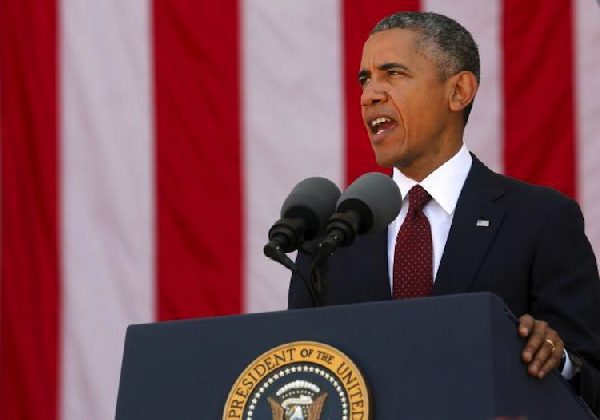
|
| People examine the debris after a suicide bomb attack in the village of al-Qadeeh, May 22 |
Saudi King Salman has vowed to punish the perpetrators of the suicide attack that targeted a Shi’a mosque, killing 21 civilians in the eastern part of the kingdom on May 22. The monarch called the bombing, which was claimed by ISIS, a “heinous terrorist attack.”
However, the monarchy has been inciting against Shi’a and feeding sectarianism in the Middle East since its inception.
Saudi media, which represent the ruling family’s views and do not dare to publish opinions hostile to governmental policies, have been a platform for clerics who degrade Shi’a and openly call for harming them.
Addressing Shi’a in Iran, Lebanon, Yemen and Iraq, Saudi pundit Khaled Al Ghamidi vowed last year to “march the armies on you and eat you alive.” Al Ghamidi also praised ISIS’s attacks in Iraq telling the Iraqi government: “What you’ve seen from us is a drop of rain from the storm.”
Al Ghamidi is one of countless commentators and religious “scholars” who regularly spew hatred and sectarianism on the Saudi airwaves. In April, Saudi celebrity cleric Mohamad Al-Arifi predicted in a tweet that Shi’a will be eradicated before Judgment Day because according to his research, “rafida” (those who reject the true teachings of Islam) have no role to play in the end of times.
Recent events, particularly the wars in Syria, Iraq and Yemen, have fueled sectarianism across the region. But anti-Shi’a bigotry is not a new phenomenon in Saudi Arabia. Muhammad ibn Abd al-Wahhab, the founder of Wahhabism, the fundamentalist ideology adopted as the official state religion and source of jurisdiction in Saudi Arabia, hated Shi’a and considered them a source of corruption and deviation in Islam.
King Faisal University published a paper by Mohamad Mallallah in 2001 endorsing Abd al-Wahhab’s book “A Letter in Responding to Rafida.” In the book, Abd al-Wahhab quotes the Prophet Mohamad as urging Muslims to fight “rafida” when they arise. The founder of Wahhabism also writes that Shi’a are turned into pigs and monkeys after their death, among other ludicrous claims.
When a bomb ripped through a mosque in the village of al-Qudeeh in the eastern Qatif region on May 22, 21 Saudis were killed by the bigotry and hatred of their own government. Saudi Arabia has marginalized its Shi’a minority politically and cracked down on its leaders. The kingdom sentenced Saudi Shi’a sheikh Nimr al-Nimr to death last year.
Monarchies thrive on stability. King Salman might have been sincere when he condemned the crime and promised to go after ISIS militants in Saudi Arabia. But the chickens are coming home to roost. Saudi Arabia cannot spread al-Qaeda’s and ISIS’ ideology without being attacked by the same lunatics it is helping to breed. Such militants are uncontrollable.
Saudi and Qatari media— especially Al Jazeera Arabic— have been glorifying and celebrating ISIS’s advances in Iraq and Syria. But the Jihadi militants might be plotting to attack Qatar and Saudi Arabia, as demonstrated by the May 22 mosque bombing.
However, ISIS and its cheerleaders do not represent Sunni Islam, just as the extremists who burned down buildings that belong to Sunnis in the Baghdad district of Adhamiyah two weeks ago do not represent Shi’a Islam.
Media outlets and governments that fuel sectarianism are enemies of all Arabs and Muslims. The fires of divisiveness are nearing an irreversible level that will devastate everything, including those fanning the flames.
Our advice to the community is that of Muslim scholar Alhabib Ali Al Jifri, who said after the May 22 attack, “Don’t say a Sunni killed a Shi’a or a Shi’a killed a Sunni. Say a criminal killed a human being.”






Leave a Reply